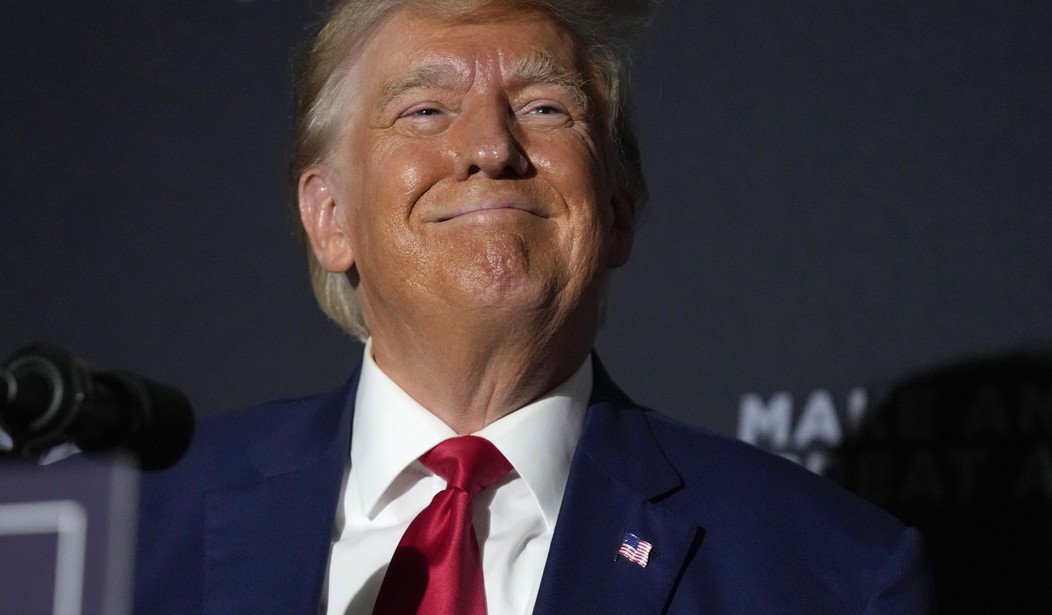Two Federalist Society scholars have written a paper due out early next year that concludes that Donald Trump is disqualified from running for any federal office because his actions on Jan. 6, 2021, violated the Constitution’s 14th Amendment ban on anyone holding any federal office who has taken an oath to uphold the Constitution and breaks that oath by engaging in “insurrection or rebellion against the same.”
This isn’t the first time that Section Three of the 14th Amendment has been raised as an issue to bar Donald Trump from running for president. But the issue has yet to be litigated.
The Federalist scholars claim to be originalists — supporters of a doctrine that employs a “method of interpretation that seeks to determine the Constitution’s original meaning,” according to the New York Times. An “originalist” also seeks to glean the original “intent” of the Amendment — something that might play a very large role in any lawsuit.
The two professors, William Baude of the University of Chicago and Michael Stokes Paulsen of the University of St. Thomas, spent more than a year researching the issue — an issue that was guaranteed to be raised in any lawsuit filed to keep Trump off the ballot.
“When we started out, neither of us was sure what the answer was,” Baude said. “People were talking about this provision of the Constitution. We thought: ‘We’re constitutional scholars, and this is an important constitutional question. We ought to figure out what’s really going on here.’ And the more we dug into it, the more we realized that we had something to add.”
The article’s conclusion: “Donald Trump cannot be president — cannot run for president, cannot become president, cannot hold office — unless two-thirds of Congress decides to grant him amnesty for his conduct on Jan. 6.”
The issue is unlikely to be settled before the GOP primaries. This sets up a potential nightmare of Republicans nominating someone who might be found ineligible to serve.
There is, the article said, “abundant evidence” that Mr. Trump engaged in an insurrection, including by setting out to overturn the result of the 2020 presidential election, trying to alter vote counts by fraud and intimidation, encouraging bogus slates of competing electors, pressuring the vice president to violate the Constitution, calling for the march on the Capitol and remaining silent for hours during the attack itself.
The only thing that matters in regard to the 14th Amendment is Trump’s actions — or inactions — on January 6. The rest are issues of free speech, intent, and definitions. As far as Trump fraudulently trying to alter vote counts by “intimidation’ — that charge is open to interpretation, which is probably why the Fulton County, Ga., prosecutor won’t include it in the coming indictment. And it was perfectly legal for Trump to encourage the formation of alternate electors — as long as he sincerely believed fraud occurred.
The same “intent” holds true if he were urging Pence not to declare the election certified.
It is Trump’s actions on January 6 — and the Supreme Court’s view of Trump’s intent — that will make or break the effort to disqualify the former president of “rebellion” or “insurrection.”
“It is unquestionably fair to say that Trump ‘engaged in’ the Jan. 6 insurrection through both his actions and his inaction,” the article says. But is it really “unquestionably fair” to say that?
But James Bopp Jr., who has represented House members whose candidacies were challenged under the provision, said the authors “have adopted a ridiculously broad view” of it, adding that the article’s analysis “is completely anti-historical.”
(Mr. Bopp’s clients have had mixed success in cases brought under the provision. A state judge, assuming that the Jan. 6 attacks were an insurrection and that participating in them barred candidates from office, ruled that Representative Marjorie Taylor Greene, Republican of Georgia, had not taken part in or encouraged the attacks after she took an oath to support the Constitution on Jan 3. A federal appeals court ruled against Representative Madison Cawthorn, Republican of North Carolina, on one of his central arguments, but the case was rendered moot by his loss in the 2022 primary.)
Section Three was specifically added to address the question of the loyalty of former Confederate soldiers and politicians to the Constitution. Even at the time, it seemed like overkill. The federal government was still occupying Southern states, and most of the old South passed laws at Washington’s request barring the participation in politics by former Confederates. But the North was in a very distrustful frame of mind and wanted the extra assurance in Section Three.
The Amendment was actually intended to “nationalize” the Bill of Rights by making it binding on all the states. But the 14th was never viewed that way until the modern Supreme Court revived the 14th Amendment’s “incorporation doctrine” that certain sections of the Bill of Rights applied to the states as well.
A strict reading of the 14th Amendment — an originalist’s interpretation — could very well prevent Trump from running for president. We can only hope that the issue is resolved before the election, or we could have the biggest Constitutional mess in American history.
